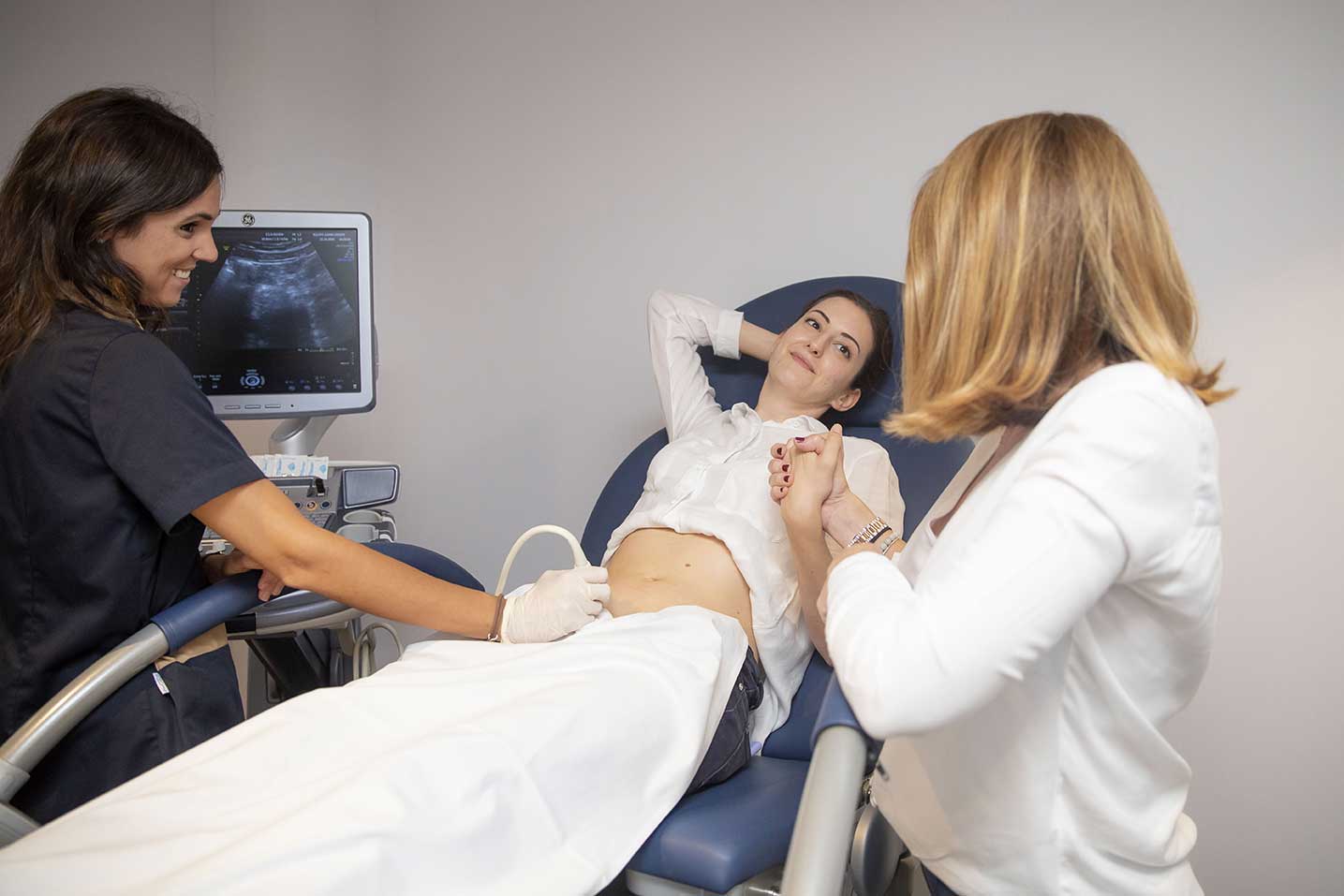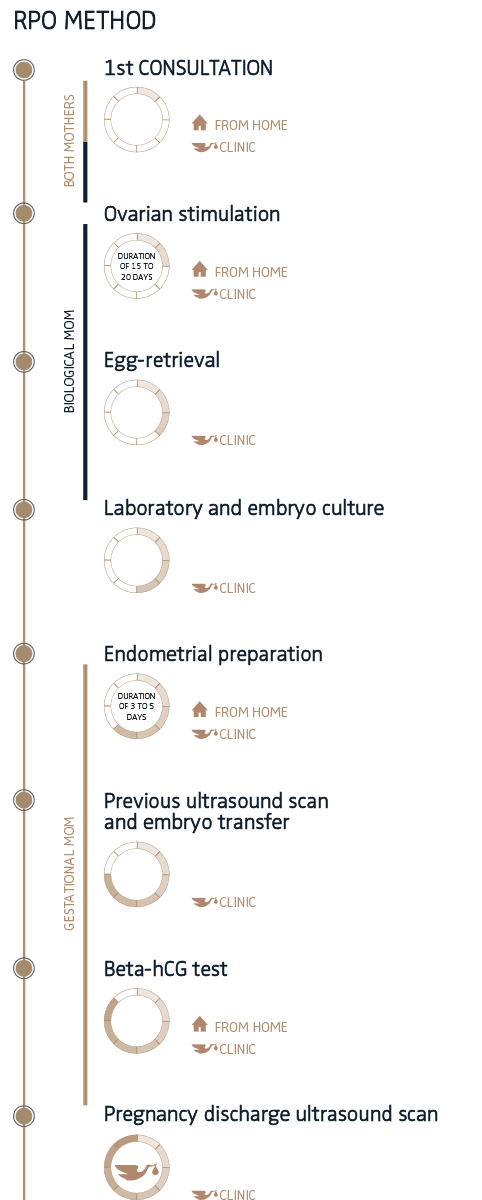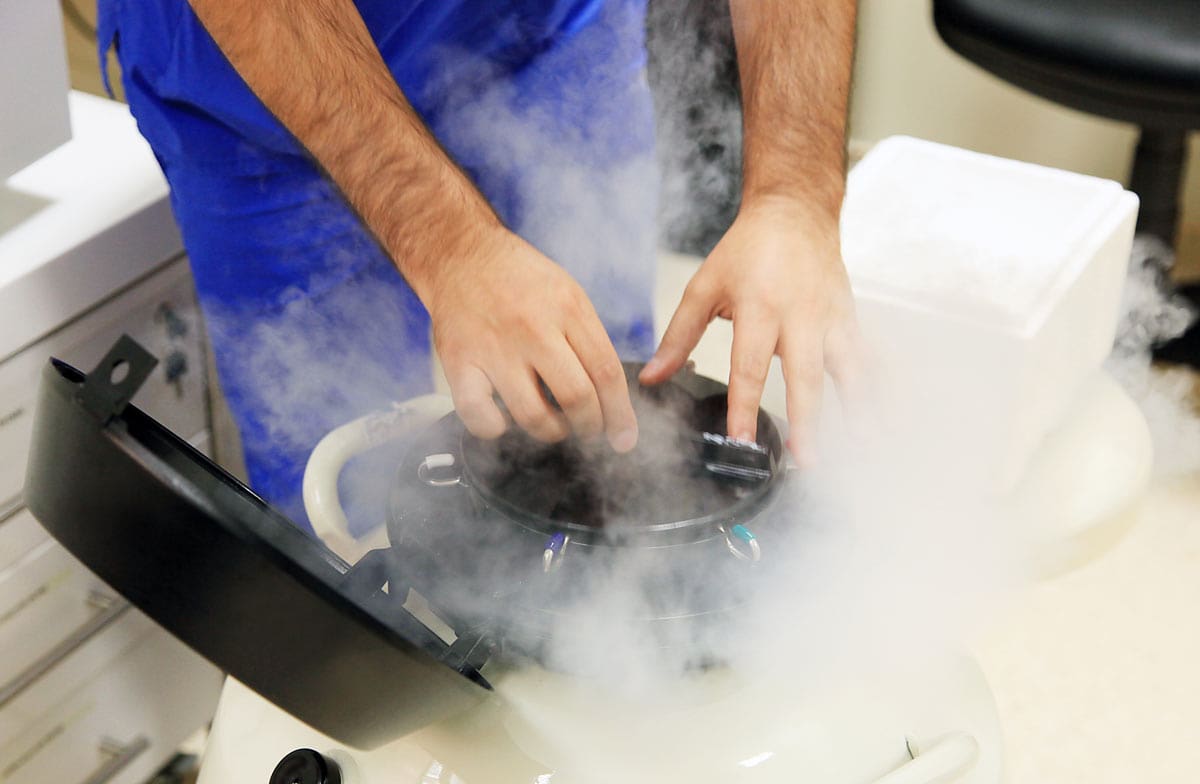Shared motherhood with the RPO method
Shared motherhood with the RPO method
At the Juana Crespo Clinic, as in all other cases, the RPO method protocols are highly customized to each individual patient. And so, in order to always ensure the greatest chances of successful pregnancy, we conduct an in-depth examination of both women, offering a recommendation, according to criteria that would lead to success, on which woman should be stimulated and which should carry the pregnancy.
RPO method: procedure
RPO method: procedure

The RPO method is a lovely way for both women who are partners to experience and take part in the process of achieving the pregnancy. At Juana Crespo Clinic, we work out a strategy for the cycle based on the two women who form the couple. Our professionals evaluate the reproductive status of both women, i.e., ovarian reserve, quality of the egg cells, condition of the uterus and other issues, in order to ensure the greatest chances of success. After this in-depth study, the specialist will develop a customized stimulation strategy for the biological mother and a strategy of endometrial development and embryo transfer for the mother carrying the pregnancy. At the end of the process both women will be biological mothers, each playing a fundamental part in this family model.

When the RPO method is recommended
When the RPO method is recommended
Pursuant to a subsequent extension of the Assisted Reproduction Act 14/2006, the parental status of the woman who provides the egg cell is recognized, and hence the Law recognizes the motherhood of both women: “When one woman is married to the other woman, and not legally separated or separated de facto, the latter may file a declaration of consent with the Civil Registrar so that when the child of her spouse is born the parental status of the child born is decided in her favor.” The RPO method, like IVF treatment with own egg cells, depends on:
- The age and ovarian reserve of the woman who will provide the egg cell
- The condition of the uterus of the mother carrying the pregnancy
- Possible antecedents of genetic diseases
At the initial visit, we carry out an in-depth evaluation of both women to determine a treatment strategy that will lead to the best results. In addition to the RPA method, women without partners or with a non-stable partner can opt for single motherhood using Artificial Insemination or In Vitro Fertilization with donor sperm or even with embryo donation.
Sperm donor
Sperm donor

In the RPO method, the egg cell of one of the women is fertilized with donor sperm. As is also the case with single mothers, the sperm donation is completely anonymous and confidential. The specialist selects the sperm donor considering the phenotype (race, physical constitution, hair type and hair and eye color, etc.) and the blood group compatibility. To become a sperm donor, the man must pass through an exhaustive medical exam, including the following tests:
- Analysis of the semen sample (mobility, morphology, concentration…).
- Blood and serology analyses (HIV, hepatitis, etc.).
- Exhaustive physical examination.
- Psychological evaluation.
- Test for freezing and thawing of the sample.
- Karyotype.
- Carrier testing.
In addition, a genetic study of the donor, known as Carrier Testing, is carried out. This test detects the possible genetic alterations and/or mutations in the donor. For this genetic testing to be effective, the woman who is going to provide the egg cell must also go through this carrier testing, since in this manner we can detect and hence prevent that the future baby is born with any of the more than 300 hereditary diseases that carrier testing studies. By taking all these steps, when the sperm sample arrives at the IVF laboratory of our clinic, we can guarantee that it is optimal in all respects and that it meets the highest standards of biological and genetic safety.
What is the procedure for the RPA method, step by step?
What is the procedure for the RPA method, step by step?


What is the procedure for the RPA method, step by step?
What is the procedure for the RPA method, step by step?
BLOG
Request your first visit
Request your first visit
Request personalized information about your case. Fill out this form and we will contact you.









